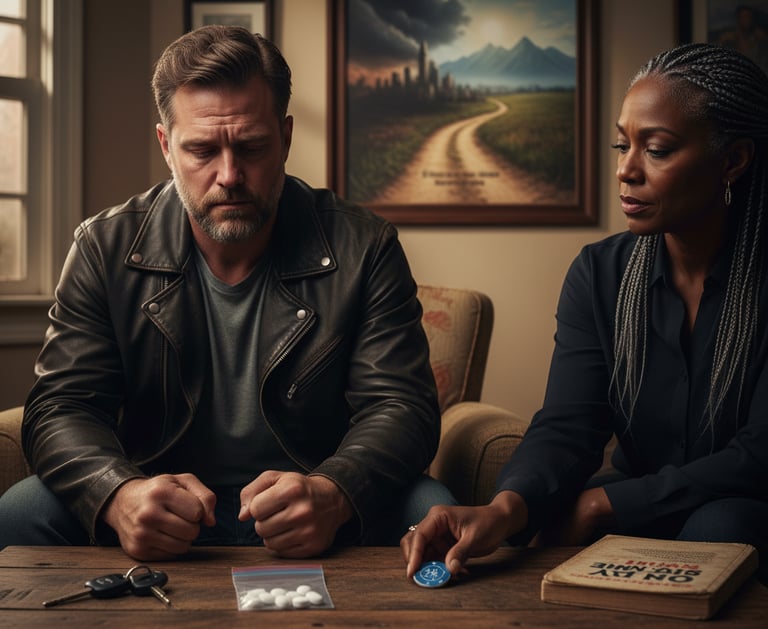Understanding Substance Use & Addiction:
Substance Use Disorder (SUD), commonly known as addiction, is a complex chronic brain disease characterized by the compulsive use of substances despite harmful consequences. It is not a moral failing or a lack of willpower. Addiction fundamentally alters the brain's reward, motivation, and memory circuits, leading to intense cravings and a diminished ability to control use. Symptoms include an increased tolerance, withdrawal symptoms when not using, and continued use despite physical health deterioration, mental health issues, and damage to relationships and work life.
Recovery is a challenging but achievable process, and psychotherapy and counselling are the cornerstones of effective, long-term treatment. Therapy addresses not just the behavior of substance use but, more importantly, the underlying psychological, emotional, and environmental factors that drive it.
Cognitive Behavioral Therapy (CBT) is a highly effective modality for addiction. It helps individuals recognize their personal triggers—such as specific people, places, emotions, or stressors—and develop healthier coping skills to manage cravings and avoid relapse. CBT focuses on changing the maladaptive thought patterns that justify and perpetuate the cycle of addiction.
Motivational Interviewing (MI) is a client-centered counselling style that is crucial in the early stages of recovery. It helps clients resolve their ambivalence about quitting, strengthen their intrinsic motivation to change, and build commitment to a treatment plan.
For those with a history of trauma, which often co-occurs with addiction, Trauma-Informed Therapy and Dialectical Behavior Therapy (DBT) are vital. They provide tools for emotional regulation, distress tolerance, and processing traumatic memories without resorting to substance use as a coping mechanism.
A counsellor or addiction therapist provides a non-judgmental, supportive alliance that is critical for healing. They help clients rebuild damaged relationships, navigate life stressors without substances, and develop a new identity in recovery. Group therapy offers powerful peer support, reducing the isolation that fuels addiction.
The goal of therapy is to help individuals understand the root causes of their addiction, build a robust toolkit for managing life's challenges, and create a meaningful, substance-free life. Seeking professional help is a courageous and life-changing step toward reclaiming control and building lasting recovery.


How Psychotherapy and Counselling Support the Journey to Recovery
Psychotherapy and counselling help address the underlying emotional struggles and create pathways toward recovery. Trickett Psychotherapy and Trickett Counselling offer compassionate resources for those seeking help.

Schedule your free 15-minute consultation with our qualified Psychotherapists Guelph to address challenges in a supportive space.
Support
Compassionate counselling and psychotherapy in Guelph.
Care
Growth
34 Harvard Road, unit 2, Guelph, Ontario, N1G 4V8
+1 (437) 826-5358
© 2025. All rights reserved.